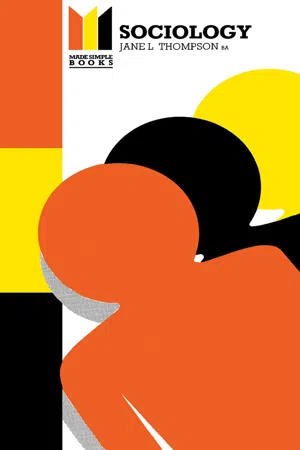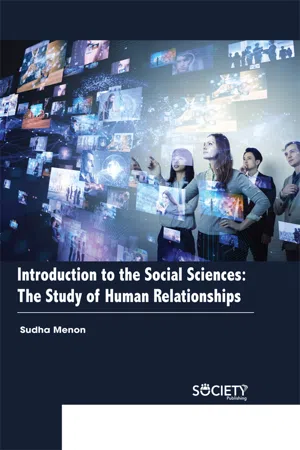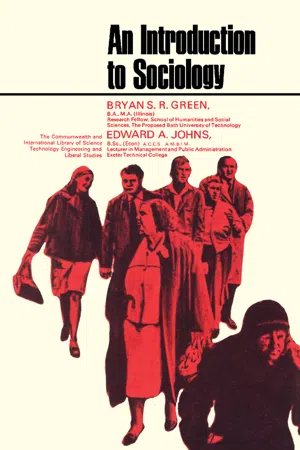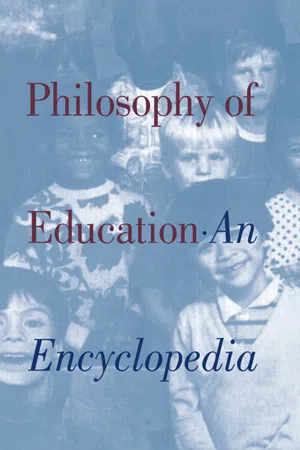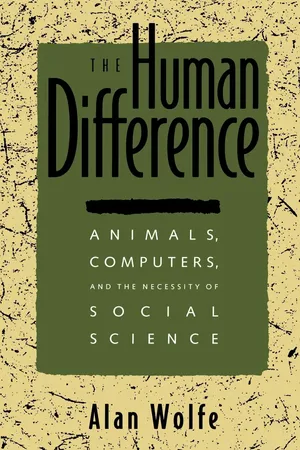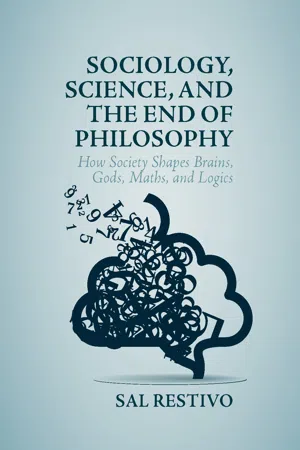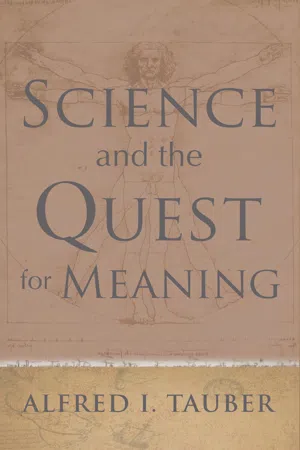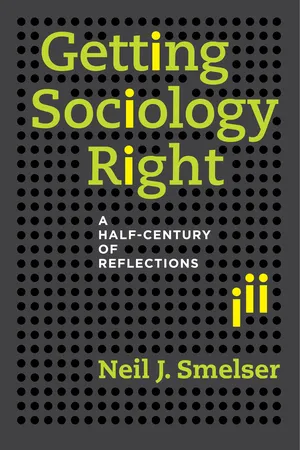Social Sciences
Sociology as a Science
Sociology as a science refers to the systematic study of society, human behavior, and social interactions using empirical evidence and scientific methods. It aims to understand and explain social phenomena, patterns, and structures through observation, experimentation, and analysis. By applying scientific principles to the study of human society, sociology seeks to uncover underlying social processes and contribute to our understanding of the social world.
Written by Perlego with AI-assistance
Related key terms
1 of 5
12 Key excerpts on "Sociology as a Science"
- eBook - ePub
- William Egelman(Author)
- 2012(Publication Date)
- Research & Education Association(Publisher)
The sociological imagination expresses both an understanding that personal troubles can and often do reflect broader social issues and problems and also faith in the capacity of human beings to alter the course of human history. The sociological imagination, therefore, expresses the humanistic aspect of the sociological perspective.THE SCIENCE OF SOCIOLOGYAs in all other sciences, the sociologist assumes there is “order” in the universe and that with methods of science the order can be understood. The sociologist, however, cannot assume that human beings will always behave in predictable ways. There are times when we do and times when we don’t.Although most of us will think and act tomorrow as we did today, some of us won’t. Unlike the rocks and molecules studied by natural scientists, we are capable of changing our minds and our behavior. Unlike the organisms studied by biologists, we are capable of treating each other as whole and complete beings. Hence, the explanations and predictions offered by sociology cannot be so precise as to express universal laws that are applicable to any thing or event under all circumstances.The Social SciencesThe social sciences are concerned with social life—psychology, with its emphasis on individual behavior and mental processes; economics, with its emphasis on the production, distribution, and consumption of goods and services; political science, with its emphasis on political philosophy and forms of government; and anthropology, with its current emphasis on both primitive and modern culture. What then distinguishes sociology from these other social sciences? In sociology the “social,” however it is defined, is the immediate concern.THE ORIGINS OF SOCIOLOGYCompared to other academic disciplines (e.g., history, economics, and physics in particular), sociology is a discipline still in its prime. It was in 1838 that Auguste Comte coined the term from socius (the Latin word for “companion, with others”) and logos - eBook - PDF
Sociology
Made Simple
- Jane L. Thompson(Author)
- 2013(Publication Date)
- Made Simple(Publisher)
Sociology and the Social Sciences Sociology is about social behaviour, why people behave as they do, what factors in society affect their behaviour, how groups of people in society organise themselves and come tg be as they are. Of course, an interest in 'people' could be claimed by almost every academic dis-cipUne in one way or another. Even nuclear scientists cannot fail to take account of the behaviour and expectations of the people in the society in which they work. But sociology is about more than an 'awareness o f or 'an interest' in people. It is an attempt to study, in as scientific and systematic a way as possible, how societies operate. This means trying to 'stand back' from society a little—watching, re-cording, measuring, evaluating and interpreting what is going on, and 1 2 Sociology trying to explain how and why so many of the things we all take for granted about society come to be as they are. Of course, societies are made up of countless individuals, all differ-ent from each other in many respects. The idiosyncracies of individual behaviour, which in part cause different people to think and react differently, are of interest to sociologists, but are probably more the concern of psychologists. Both disciplines are closely related, but whereas the psychologist tends to start from the individual, the socio-logist usually concentrates on the social group he or she belongs to. Sociologists look more for similarities and patterns that can be detected in the behaviour of numbers of individuals who maybe share the same environment or social class or nationality. They try to make accurate generalisations about the characteristics of human behaviour and social organisation, to identify what causes them and to suggest what their implications might be. It is probably this kind of concern that has in the minds of many laymen earned the sociologist the re-putation of being 'nosey'. - Sudha Menon(Author)
- 2020(Publication Date)
- Society Publishing(Publisher)
Scientific methods provide limitations and boundaries that focus a study and organize its results (Bohman and Nouwen, 1991; Herek, 2006; Winch, 2015; Zetterberg, 2018). The scientific method involves developing and testing theories about the world based on empirical evidence (Benton and Craib, 2010; Trist et al., 2016; Zetterberg, 2018). It is defined by its commitment to systematic observation of the empirical world and strives to be objective, critical, skeptical, and logical (Benton and Craib, 2010; Fay, 1987; Thompson, 2017; Yogesh and Mokshapathy, 2013). It involves a series of prescribed steps that have been established over centuries of scholarship and repeated over time in order to produce consistent and defensible results (Bohman and Nouwen, 1991; Trist et al., 2016; Yogesh and Mokshapathy, 2013; Zetterberg, 2018). 1.2. SOCIAL SCIENCE AS A STUDY OF HUMAN BE-INGS Another way of looking at social science is to conceptualize it as a study of human beings (Sherkat, 2012). This is what is sometimes known as human science studies (Trist et al., 2016). These studies focus on the social, biological, philosophical and cultural dimensions of human existence (Thompson, 2017). An interdisciplinary approach is required in order to understand the complex nature of human beings (Trist et al., 2016). For example, a child comprises of living cells which are differentiated into body parts such as the head, arms, and feet (Winch, 2015). However, a child is a lot more than that. They have a conscience and behavioral that are not entirely associated with their physiology. A child is also a social construction through socialization and custom. The contribution of human science studies is in- eBook - PDF
- Bryan S. R. Green, Edward A. Johns(Authors)
- 2013(Publication Date)
- Pergamon(Publisher)
CHAPTER 1 SOCIOLOGY AS A SCIENTIFIC DISCIPLINE ONE of the most puzzling and irritating aspects of sociology to someone first exposed to it is the contrast between the subject matter, which consists largely of aspects of social existence familiar to the layman, and the language used by the sociologist in analysing and describing it; this being largely unfamiliar, esoteric and tech-nical. Part of the difficulty in accepting the necessity of such a language lies in the fact that we are social beings already possessing an everyday language which we use to order our own lives and to make sense of the social world around us. It is hoped that this chapter will show why special words, or the special use of familiar words, is necessary. It is the aspiration of sociology to be a scientific discipline which sets the sociologist apart from the social philosopher, the social critic and the journalistic commentator, even though they may be concerned with the same phenomena. This is not to say that the sociologist claims a monopoly of knowledge or understanding regarding society. He is merely developing one approach to further understanding as intensively as possible. If the results ultimately prove less enlightening than those produced by the philosopher, the commentator or the novelist then at least it can be argued that the effort to apply the methods of scientific ex-planation to social data was necessary and worth while. The most general aim of a science is to establish empirically validated propositions (sometimes called laws) concerning the relationships between events and objects which can be observed directly or indirectly. The scientific approach in social studies may 1 2 AN INTRODUCTION TO SOCIOLOGY at first sight appear desiccated and dull compared to the vivid descriptions possible in historical narrative or to the exciting speculations possible in social philosophy. - eBook - ePub
Philosophy of Education
An Encyclopedia
- J.J. Chambliss(Author)
- 2013(Publication Date)
- Routledge(Publisher)
Sociology
Eric Bredo DOI: 10.4324/9780203054253-222Sociology was originally conceived of by Auguste Comte as the science of society. It would find the laws governing society analogous to those of physics. So conceived, sociology would include all of the social sciences, taking its place at the top of the hierarchy running from physics to chemistry to biology to sociology. Of course, it did not work out that way: Sociology had to accept a more modest role as it was incorporated into the university. In fact, some have described it as what was left after the established disciplines had taken what they wanted. The question arises as to what, if anything, unites sociology or differentiates it from other social sciences. One answer—similar to Comte's—is that it deals with a unique object, “society, “which is the cause of the diverse phenomena being studied. The various social sciences are then complementary parts of this larger sociological enterprise, even though they do not recognize it. Another answer is that sociology deals with certain general forms of social relationship, such as superordination and subordination, whose workings can be seen in a variety of specific endeavors. By that account, sociology adopts a particular viewpoint that is different from that of the other social sciences. A third approach, adopted here, is that sociology is united by the recurring themes evident in its history. Some of these themes will be suggested in the following discussion of the development of sociological theory.Modern sociology began to emerge in early-nineteenth-century Europe as an outgrowth of the rise of science and urban-industrial society. No doubt as a result of these origins, the central problems of the field have continued to involve (a) the relations between modern economic organization and social relationships considered more broadly; (b) the nature and causes of progress, social evolution, or long-run change; (c) the relationship between science and religion, or between scientific and moral concern, especially as this relates to sociology itself. Work in the early or founding period was largely programmatic, philosophical, and hortatory in character. It tended to suggest that some ultimate unity or balance of economic and social concerns was possible, that social evolution was ultimately tending toward such a Utopian state, and that a science of society was both scientific and moral because it could help bring about such conditions. - eBook - PDF
The Human Difference
Animals, Computers, and the Necessity of Social Science
- Alan Wolfe(Author)
- 2023(Publication Date)
- University of California Press(Publisher)
Chapter Six Social Science as a Way of Knowing The Two Faces of Social Science From biology in the late nineteenth century to information theory in the late twentieth, the social sciences have turned to the natural sciences for inspiration. Yet the expectations have never fully been satisfied. After more than one hundred years of effort, the ability of social scientists to say anything with certainty about human behavior is not impressive. We remain close to where we started, developing theories, trying to test them against data, arguing about methodology, and dis- puting conclusions. The social sciences have neither the public legitimacy nor the self-confidence that comes from the practice of "real" science. There are numerous explanations for the failure of the social sciences to develop along the lines of the natural sciences, but surely among them ought to be included the special subject of the social sciences: human beings. The aim of a science is to describe and predict the behavior of the subjects it studies. Human subjects, because they can interpret the world around them, create sacred worlds of meaning out of their profane everyday affairs. A science of the human species that ignored one of the most significant aspects of what humans do would be like physics without the atom. It is anything but science to borrow the insights of those who study mindless subjects and apply them to those who possess mind. Nor does it satisfy the 1 37 i38 Social Science as a Way of Knowing first criterion of science to understand those whose complex affairs are governed by the search for meaning on the basis of self-regulating systems that function without any special realm for meaning. The social sciences, unlike the natural sciences, must incorporate the study of great humanistic texts in order to be a science. - eBook - ePub
The Sociological Quest
An Introduction to the Study of Social Life
- Haydn Aarons, Evan Willis(Authors)
- 2022(Publication Date)
- Routledge(Publisher)
As Peter Berger (1963 : 15) has argued, social work is a practice in society whereas Sociology is more of an attempt to understand society. Sociology is one of the disciplines (along with Psychology) in which aspiring social workers should receive training. But there is nothing inherent in the aim of understanding how the social world works that inevitably leads to a particular practice. This fact notwithstanding, as we explain in depth in Chapter 9, sociological knowledge and skills can be applied to great effect to a range of industries and professions. So, sociological explanation can be distinguished from other forms of explanation, both of a social scientific nature and of an unscientific nature. From the latter, differentiation is possible because sociological explanation depends on the use of empirical evidence. For other social sciences, while acknowledging the considerable overlap between the different disciplines, and, in some senses, the artificial nature of the distinctions anyway, the difference between sociological and other types of explanation is largely one of emphasis. S ocial structure Like all the social sciences, Sociology is concerned with the relationship between the individual and society. The uniqueness of the sociological, though, compared with other sorts of explanation, lies in the manner in which the understanding of social phenomena is sought in the organisation of society as a whole – usually referred to as the social structure of society. This concept is defined in terms of the patterns of relationships, which are both persistent and systematic, between the different parts of a society. The social structure is comprised of different social institutions that are regular, organised patterns of social behaviour, such as universities or hospitals. Social structure and social institutions, it is important to note, are not fixed, unchanging, monolithic entities resulting in a neat organisation of society - eBook - PDF
- Mel Churton, Anne Brown(Authors)
- 2017(Publication Date)
- Red Globe Press(Publisher)
This might include the use of diaries, letters, novels, observation and so on. Additional objections to Sociology as a Science Anti-positivists are not alone in challenging the assumption that sociology should attempt to adopt the methods of the natural sciences and endeavour to become a science of society. Traditionalists who are keen to preserve the status of science have been determined to prevent it from becoming associated Sociology and Science 377 with the younger and more subversive discipline. Working within the tradi-tional definition of science, critics of the positivist movement have condemned sociology as unable to meet the rigid expectations of science. Sociology cannot be systematic because human behaviour is influenced by the context in which it takes place, and this cannot be controlled. Sociology cannot be replicated because human life is a continuously changing process. It is impossible to freeze life at a certain point in time in order to study and restudy it. Critics also question the capacity of sociologists to be objective in their study of human behaviour. They point out that sociology is characterized by competing paradigms and perspectives, and suggest that it would be impossible for sociological researchers to divorce their beliefs from their research. Realism Realists (see Bhaskar, 1979; Keat and Urry, 1982; Sayer, 1992) offer another dimension to the sociology-as-a-science debate by challenging the traditional objections outlined above. Realists argue that many of the objections of tradi-tionalists are unfair as they are based on the assumption that scientific practice mirrors the definitions historically associated with it. So, sociology is being unfairly judged as unable to match the precise criteria of science, when science itself would struggle to meet the same criteria. Second, realists claim that far from being objective and value-free in their research, scientists are as prone to bias as the next person. - eBook - PDF
Sociology, Science, and the End of Philosophy
How Society Shapes Brains, Gods, Maths, and Logics
- Sal Restivo(Author)
- 2017(Publication Date)
- Palgrave Macmillan(Publisher)
For two hundred years sociology and anthropology have been developing a robust scientific profile outside the mainstream of the public understanding of science. And for about fifty years, the interdisciplinary field of science and tech- nology studies has been transforming our understanding of science and technology as social products, social institutions, and socially situated. Some hints of these developments have reached the intellectual commu- nity in two forms; on the one hand we have distorted and misunderstood ideas about “the social” and “social construction of science” attributed to The High and Low Traditions in Sociology 59 the weakened reasoning of a vaguely defined group of “postmodernists.” In general, the public and scientific imaginations have been blocked from the actual nature of these developments by the preeminence and notable achievements of the physical and natural sciences combined, notably in the United States with a psychologistic cultural mythology. On the other hand, we have seen a more or less sociologically viable notion of “the social” emerging in the neuro- and life sciences and even in the turn to practice in philosophy. While the robustness of the social sciences remains veiled by cultural prejudice and the ideology of science, the very idea of the social is increasingly being brought to the attention of scientists and humanists. We are in an age of the social in a way the ancient Greeks were defined in part by an age of philosophy that adumbrated systematic organized science. The idea of the social has at the same time shown up as a factor in the emergence of interdisciplinary studies from the late 1960s on. This movement has created an arena of debates and discussions over new ways of conceiving the development of science, technology, the arts, and culture in general. A door has been opened for the disciplines of sociology and anthropology to take a more central place among the disciplines merging into interdisciplinary sciences. - eBook - PDF
Explaining Social Life
A Guide to Using Social Theory
- John Parker, Hilary Stanworth(Authors)
- 2017(Publication Date)
- Red Globe Press(Publisher)
Social science and everyday social knowledge In everyday life we use our knowledge of how we and others are collectivised. But this knowledge varies in quality, is often partial, and formed through various processes about which we tend not to be methodologically critical. This is not just because we may be lazy. In the mix of causes shaping social life are processes encouraging us to accept as knowledge, accounts which facilitate participating in social life without adequately explaining it. For our approach, this difference between the causally powerful knowledge which enables practical participation, and the knowledge which incorporates this kind of causa-tion in its own menu of inter-related causes when producing explanations , is very important. Social life requires us to use something passing for knowledge and to get enough of it right to be practical. But being practical does not necessarily depend on that knowledge being complete, nor able to withstand criticism from some other point of view, such as that of social science. Social theory, critical practice and making complexity intelligible The social sciences like sociology, anthropology and history take on this job of critically evaluating and supplementing the competing everyday understand-ings of collectivisation and of ‘collective’ phenomena – which are the aspects of people’s lives that they share with at least some others and are not unique to any one of them. Though not all collective phenomena are products of Introduction 3 social forces, many are, and it is these that the social sciences concentrate on. The critical potential of the social sciences is founded in the practice of basic social theory which tries to define and understand the general kinds of causes which must always be taken into account when explaining collective phenomena. - eBook - PDF
- Alfred I. Tauber(Author)
- 2011(Publication Date)
- Baylor University Press(Publisher)
Our consideration of these matters begins with two observations. First, the “package deal” of doing science and placing science within its intellectual and social contexts argues that science and its study as a human activity cannot be separated. This interdisciplinary effort arises because neither the laboratory nor technical discourse can circumscribe the boundaries of science (Gieryn 1995). The findings seep into applica-tions, which affect our material culture, medicine, the military, and virtu-ally all aspects of Western societies. Only an educated public can make appropriate use of the fruits of scientific labor; thus scientists and policy makers must closely coordinate their efforts to reap the greatest harvest from the investment made in research. Second, the critique of science is essential to its flourishing. Science gains its place at the table precisely because of its power to define a com-peting worldview. The “naturalization” of humans, from the evolution of species to the biological character of the mental, testifies to how success-fully scientific explanations have been translated into potent theories of human nature and society. However, notwithstanding the effective pen-etration of scientific theory into notions about the nature of our social and psychological existence, a careful scrutiny is required to apply the conceptual lessons appropriately. Closely linked to such applications, the converse operation is also necessary, namely, a critical view of the truth claims made by scientists. With these critiques, philosophy and history 136 Science and the Quest for Meaning of science find their most pressing calling. As already discussed, on this broad view, science is part of a larger historical development of human-ism and ultimately finds itself in its service to pursue means of achieving human goals and ideals. - eBook - PDF
- Neil J. Smelser(Author)
- 2014(Publication Date)
- University of California Press(Publisher)
If pursued creatively enough, this strategy can consume the entire time devoted to the question and throw enough dust in the eyes of the examiner to earn a decent grade. I promise not to take up my entire remarks with clarifications. I will, however, make an initial clarification of the assigned theme of “sociology as art and science” and in doing so will reveal my major argument. Here is the clarification. Instead of addressing the topic of “sociology as art and science,” I will maintain that over the past century the major debates and dilemmas in our field—right up to the present—can be understood in terms of sociology’s proximity to three intellectual outlooks. These may be referred to as the scientific orientation, the humanistic orientation, and the artistic orientation. At the risk of anthropocentrism, I put sociology in the center of the map and represent the three neighboring orientations as sur-rounding it (see figure 2, next page). First, a few definitional notes: • Sociology I will not define for the moment, and by not doing that I shorten my remarks considerably. • By the scientific orientation I refer to inquiry that focuses on natural laws and logically closed theoretical formulations; on causal, even deterministic analysis; on a dispassionate attitude toward the subject matter under study; on empirical study; on precision and measurement; and on a method of inquiry that isolates and controls many possible causes in order to arrive at the decisive ones. 150 l a t e r e x p l o r a t i o n s • By the humanistic orientation I have in mind inquiry that focuses on the human being; includes a preoccupation with the human condition (including human suffering); and deals above all with human meanings, systems of which constitute culture. What I am calling humanism overlaps in complex ways with humanitarianism, humaneness, and the disciplines in the humanities, but I will forego trying to explicate this complex conceptual geography.
Index pages curate the most relevant extracts from our library of academic textbooks. They’ve been created using an in-house natural language model (NLM), each adding context and meaning to key research topics.

